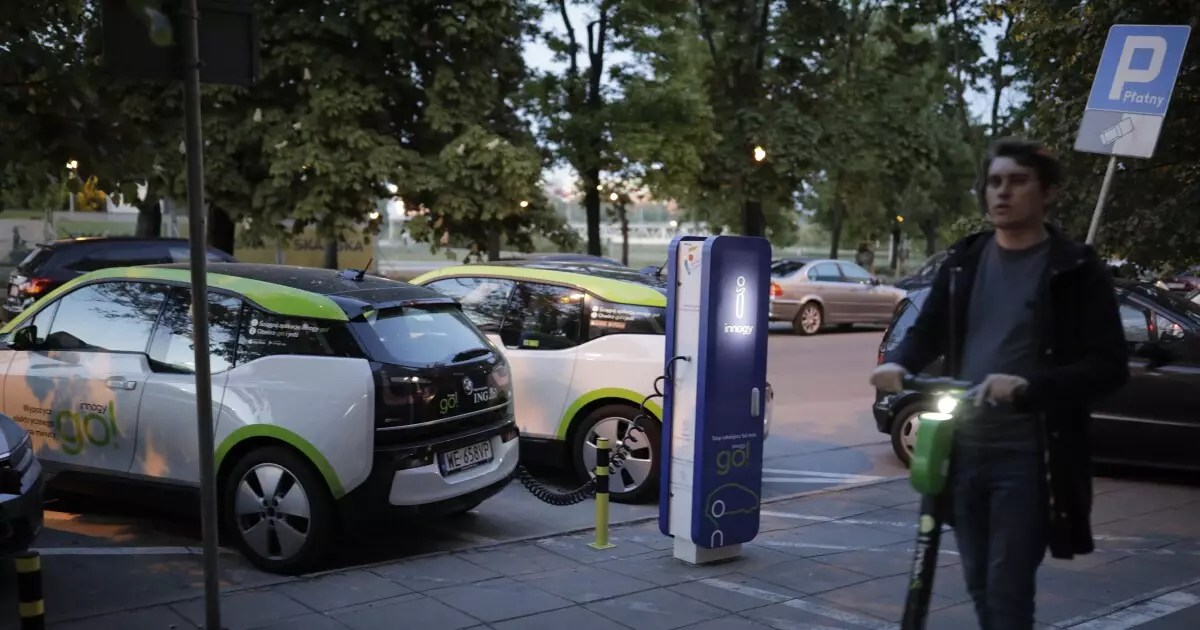The recent developments concerning the House Transportation and Infrastructure Committee’s budget reconciliation bill not only underscore the perennial disputes within the U.S. Congress but also reflect a more profound ideological divide regarding transportation funding. The bill, which has now advanced without a proposed $20 annual vehicle registration fee, reveals the complexities of reimagining how we fund the Highway Trust Fund (HTF). Amidst robust debate, the Party of Lincoln seems to be searching for new solutions while navigating internal dissension.
This pivot away from a national vehicle registration fee stems from considerable pushback among Republican ranks, highlighting the party’s unease with introducing additional taxation—even if intended for a good cause. Such hesitancy signals the need for a more conservative approach to government revenue that has historically leaned on taxes gathered at the gas pump. The struggles faced in shifting to user fees for vehicle owners are indicative of a government grappling with outdated methodologies in a rapidly evolving transportation landscape.
A Modern Approach to Funding: Electric and Hybrid Fees
While the bill ultimately scrapped the universal vehicle registration fee, it proposes noteworthy adjustments such as a substantial annual fee for electric vehicles set at $250 and a $100 fee for hybrids. The intention to index these user fees to inflation is a significant advancement, suggesting that lawmakers are considering a responsive mechanism to address funding shortfalls in a pragmatic way. However, while these fees are seen as a necessary step toward rejuvenating the HTF, a deeper question lingers: are they merely band-aids on a much larger systemic issue?
Committee Chair Rep. Sam Graves’ assertion that these fees could increase revenue by over $38 billion in the next decade signals optimism in Republican circles, yet one must question whether this is merely a conservative dream or a genuine long-term solution to a long-ailing fiscal crisis. The reality is that the HTF’s reliance on outdated tax structures inhibits innovation in funding mechanisms, an area in which the GOP ought to be taking the lead instead of retreating into ideological rigidity.
Defense vs. Innovation: Trimmed Funding and Future Challenges
The decision to reduce the proposed investment for modernizing air traffic control from $15 billion to $12.5 billion and cut the Coast Guard’s budget from $23 billion to $21.2 billion raises important concerns about prioritization. By shifting funds away from immediate modernization projects in civil aviation and coast guard operations, Republicans risk neglecting critical areas that ensure both national security and economic efficiency. On one hand, the claim of promoting “historic” Coast Guard investments exists in contrast to the reality of reduced funding. Such cuts can precipitate delays and inefficiencies that ripple throughout our economic framework.
These choices also illuminate a broader ideological battle within the party: the choice between investing in foundational infrastructure vs. attacking “wasteful” spending associated with Green New Deal initiatives. Rep. Graves’ statements suggest a skewed prioritization that may misread the public’s appetite for both fiscal restraint and sustainable innovation. If the party continues down this path, it will inadvertently undermine the credibility of any claims to prioritize necessary modernization efforts.
The Role of Partisanship in Infrastructure Development
Moving forward within a hyper-partisan climate compounds the difficulties faced in advancing even the most pragmatic initiatives. The recent markup hearing lasted eight arduous hours, with Democrats presenting over 100 amendments—all of which were shot down along party lines. Ranking member Rep. Rick Larsen voiced the frustrations widespread among Democrats who view these budget cuts as a ‘betrayal’ of committed investment in critical infrastructure and community health.
Such deep divisions only serve to highlight the growing disconnect between governing ideologies. The current Republican narrative appears centered on fiscal caution, which, while often appropriate, can quickly devolve into negligence if not balanced with forward-looking investment strategies. The reluctance to engage with Democrats in open dialogue only solidifies a status quo that leaves both parties entrenched in their positions, potentially hindering the country’s future mobility.
This moment in American politics could be a significant inflection point—a need to reevaluate how infrastructure is funded while being open to the innovative mechanisms and collaborative spirit necessary to achieve lasting reform.


Leave a Reply